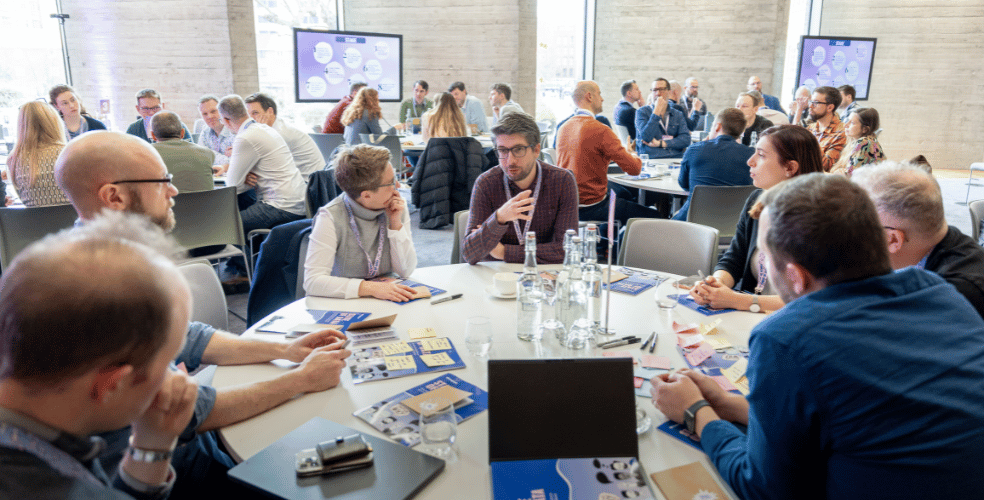I’ve spent much of my career exploring the intersection of technology, data, and society, and in particular how to reflect and honour human diversity when we create computer systems. I did my PhD in psychology and artificial intelligence in the 1990s, at the advent of the web and when AI was all about modelling human knowledge and decision-making. My research focused on how to help experts, who have different ways of thinking about the world and the decisions they make, to understand each other’s perspectives and come to an agreement.
After completing my PhD, I moved into freelance development and consultancy, focusing on the web and XML. This led me to work on open standards at the World Wide Web Consortium (W3C) and eventually brought me into the world of open data with the UK Government. For about five years, I worked as the technical architect and lead developer of legislation.gov.uk, a platform designed to make laws accessible to everyone, including as open data, but perhaps more importantly to help public servants keep that legislation data up to date. It was here I learnt what it takes to make data reusable, and some of the challenges of digital transformation within the public sector.
In 2012 I joined the Open Data Institute (ODI), initially as Technical Director before becoming CEO in 2016. At ODI, I championed efforts to publish open data while addressing the complexities of sharing information ethically when openness wasn’t possible. That led me to focus on the big questions of data governance: who gets to make decisions about data? After I left, in 2022, I founded Connected by Data, a campaign focused on ensuring communities have a powerful say in decisions about data and AI. There, we work to empower people affected by data and AI to participate in shaping these technologies’ roles in their lives.
Bridging the gap
The government faces many challenges in driving the adoption of technology across the public sector. The one that most interests me is how it builds and retains trust in how it uses data and AI. While many public sector organisations aim to harness data for societal benefit, not everyone feels that government is on their side. Too often, citizens feel disconnected—or worse, distrustful—of data and AI initiatives. This has real-world consequences. In healthcare, for instance, if patients fear their personal information might be misused—whether in decisions about the benefits they receive or passed on to companies they don’t trust—they may withhold critical details from their doctors or avoid seeking care altogether.
To address this, we need to involve the public, and civil society, at every stage—from designing data collection processes to monitoring outcomes once systems are live. Early involvement means that diverse voices help shape technologies, aligning them with community needs and values. Robust mechanisms must also be put in place to allow for ongoing feedback, allowing the public to flag issues, suggest improvements and gain redress when things go wrong. Civil society plays a crucial role here, acting as intermediaries who can amplify grassroots perspectives and hold institutions accountable.
At Connected by Data, we support this process through various initiatives. We’ve facilitated “people’s panels” where members of the public review high-level discussions around AI policy. We’ve partnered with grassroots campaigns, helping them understand how data impacts their communities and equipping them to advocate effectively and convene the UK’s Data and AI civil society network. We’ve also engaged directly with policymakers, such as running workshops with the Welsh Government / TUC Cymru and others to explore practical ways to involve the public in AI procurement.
A vision for democratic accountability
Looking ahead, my vision for the future centres on embedding democratic accountability into the fabric of public sector data and AI systems. I imagine a world where public services are co-designed with input from both citizens and frontline workers; where accountability is a fundamental principle underpinning every system; and where independent watchdogs and civil society organisations are empowered to monitor and challenge government practices constructively.
Reaching this point will require significant cultural shifts. First, the public sector must view civil society not as critics or blockers but as active partners in improving services. When objections are raised, they should be seen as opportunities for learning and dialogue rather than attacks. Second, accountability must be built into systems by design. Transparency reporting, mystery shopper exercises, and other tools can ensure that external stakeholders can assess performance and provide feedback.
We already see glimpses of this happening. User research, now standard practice in developing public services, lays the groundwork for deeper engagement. What’s needed next is scaling up this approach to include a broader range of voices earlier in the process, and tackle systemic issues head-on. Only then will digital public services truly serve everyone equitably.
The importance of coming together
Events like Power of Data play a vital role in advancing this agenda. They bring together diverse voices—from public sector leaders to technologists and advocates—to discuss shared challenges and chart a path forward. These gatherings allow for challenging yet constructive conversations, pushing us all to think critically about how we design and deploy technology.
For me, speaking at these events is less about presenting solutions and more about sparking dialogue and debate. Technology isn’t something that happens to us; it’s something we collectively shape. The more inclusive these conversations are, the better equipped we’ll be to create systems that work for everyone.
Ultimately, I believe that the future of data and AI in the public sector hinges on partnership. Governments, civil society, suppliers, and communities must come together to ensure these powerful tools enhance lives without compromising rights or dignity. If we get this right, we won’t just improve public services—we’ll strengthen democracy itself.
Jeni will be speaking at our Power of Data event on the 25 February. Register your interest in attending at: https://pages.tpximpact.com/power-of-data

Shaping the future of data in government
We share some key takeaways on data sharing, AI, innovation, and transformation across government from our Power of Data roundtables.
Read moreOur recent insights
Transformation is for everyone. We love sharing our thoughts, approaches, learning and research all gained from the work we do.

Connecting government services for greater impact
Breaking down silos and joining up services is key to delivering better public outcomes. At our latest Digital Forum, we explored how to make it happen.
Read more
Building better public services with service patterns
As part of Services Week 2025, we explored how service patterns can create more consistent, efficient, and user centred services.
Read more
Designing cross-cutting public services
How we can join up systems, data, and policy to create connected public services that work for everyone.
Read more

